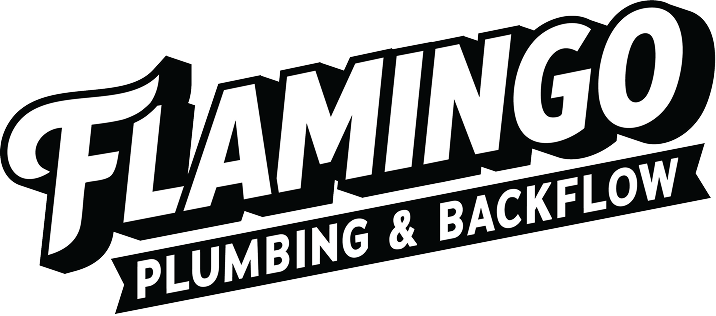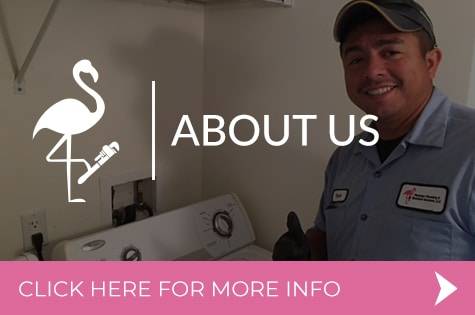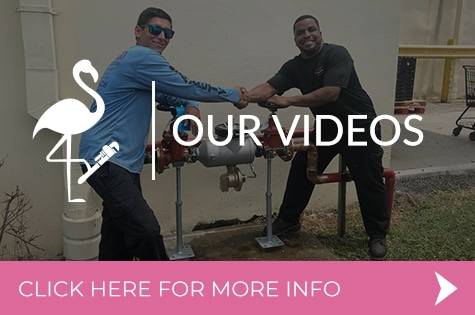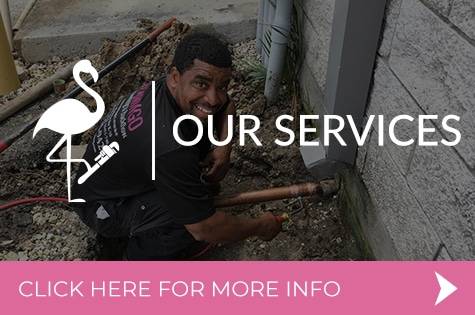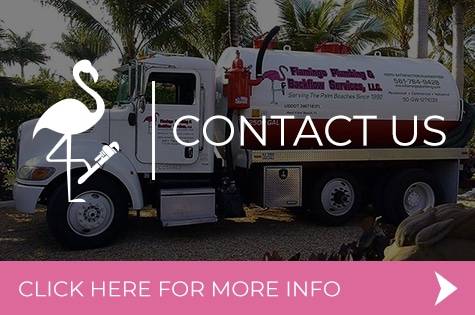Alone the thought of coming home to damaged or burst pipes can stress some people out. Unfortunately, this is a reality for many homeowners. There are several reasons that can lead to damaged or leaking pipes and knowing what to do in such a situation will allow you to act fast and reduce damage to your home.
No matter how it happens – you may live in an older home or your plumbing may become damaged – a damaged or leaking pipe is the last thing you want to deal with after a long day at work. Here are some tips and tricks to remember if you ever find yourself in your home with burst or leaking pipes.
Shut Off The Water Supply
Shutting off the water supply is the first step you should take in the event of a burst pipe. Turn off the main water supply as soon as you can. This will prevent further water damage to your home and give you some time to take additional steps to curb the situation. If you don’t know where your water supply valve is, try checking in the basement, crawl space, around the water heater, or near the curb.
Once you have shut off the water, open your faucets to drain excess water. This will also relieve some pressure on the water line and help prevent additional damage. Once you stop all sources of water, any leaks should stop and give you a chance to take the next step.
Locate the Burst or Leaking Pipe
Once the water has been shut off, you don’t want to waste any time in locating the burst pipe. If it appears the pipe/pipes have been leaking for a while, be cautious when entering the rooms and look for signs of water damage that may have already occurred. Once you locate the leak, place a tumbler or bucket underneath to catch the leaking water.
Document the Damage for Insurance Claim
Possibly one of the most important things to remember when dealing with a burst or leaking pipe is to document the damage for insurance claims. You can skip this step if the damage is minimal but in any other case, take pictures to evidence of the damage. Take close-up pictures of everything damaged by the water. If needed, you can use a measuring tape to note the water level in your home.
When dealing with water damage, you don’t have much time before microbes and mold begin to form, so you want to get in touch with your insurance provider as soon as you can. If there’s any part of your insurance policy you are unable to understand, get in touch with a public adjuster to help you out.
Call A Plumber
This may seem obvious to many, but you’d be surprised how many people forget to call for professional help during such events. While you might have some experience in DIY repairs, it’s always a good idea to call a plumber in the event of a burst pipe. Not only are they more knowledgeable on the subject matter, but they are also better equipped to stop or prevent water damage.
Turn Off Electrical Panel
It’s hard to overstate how important it is to turn off your home’s electricity when there is water damage. Before you even start cleaning the excess water, make sure to turn off the main electrical supply to your home to avoid short circuits or electrocution. These panels are usually located in the basement, garage, or outside of the house. If there is water blocking your path to the electric mains, call an electrician to help you out.
At Flamingo Plumbing and Backflow, we know how daunting it can be to deal with a burst or leaking pipe when you are not prepared. Fortunately, we are only a phone call away in the event of a pipe burst or leak. If you need plumbing assistance or a quick diagnosis of your plumbing system, we at Flamingo Plumbing and backflow can help.
